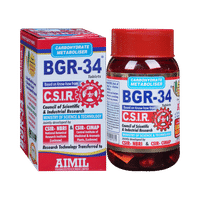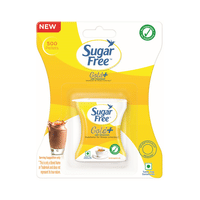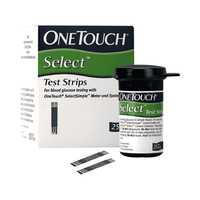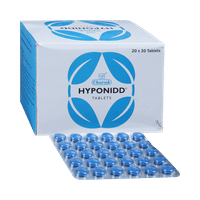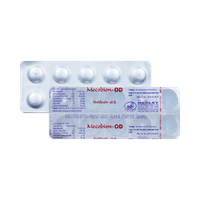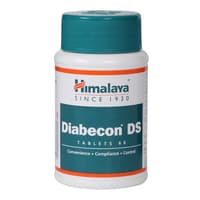Rs.12.60for 1 strip(s) (10 tablets each)
food interaction for Glibenaid Tablet
alcohol interaction for Glibenaid Tablet
pregnancy interaction for Glibenaid Tablet
lactation interaction for Glibenaid Tablet
food
alcohol
pregnancy
lactation
Glibenaid 5 Tablet is to be taken with food.
None
None
CAUTION
It is unsafe to consume alcohol with Glibenaid 5 Tablet.
UNSAFE
Glibenaid 5 Tablet is generally considered safe to use during pregnancy. Animal studies have shown low or no adverse effects to the developing baby; however, there are limited human studies.
SAFE IF PRESCRIBED
Glibenaid 5 Tablet is probably safe to use during breastfeeding. Limited human data suggests that the drug does not represent any significant risk to the baby.
Monitor the breastfed baby’s blood sugar during treatment with Glibenaid 5 Tablet
Monitor the breastfed baby’s blood sugar during treatment with Glibenaid 5 Tablet
SAFE IF PRESCRIBED
SALT INFORMATION FOR Glibenaid 5mg Tablet
Glibenclamide(5mg)
Glibenaid tablet uses
{med_name} is used in the treatment of type 2 diabetes mellitus. It is used along with diet and exercise to improve blood sugar control in adults with type 2 diabetes.
How glibenaid tablet works
Glibenaid 5 Tablet is an antidiabetic medication. It works by increasing the amount of insulin released by the pancreas in order to lower blood glucose.
Common side effects of glibenaid tablet
Hypoglycemia (low blood glucose level), Nausea, Headache, Dizziness
SUBSTITUTES FOR Glibenaid Tablet
45 Substitutes
45 Substitutes
Sorted By
 Rs. 58.98pay 53% more per Tablet
Rs. 58.98pay 53% more per Tablet Rs. 10.78save 14% more per Tablet
Rs. 10.78save 14% more per Tablet Rs. 7.61save 40% more per Tablet
Rs. 7.61save 40% more per Tablet Rs. 13.13pay 2% more per Tablet
Rs. 13.13pay 2% more per Tablet Rs. 8.58save 33% more per Tablet
Rs. 8.58save 33% more per Tablet
Expert advice FOR Glibenaid Tablet
- Take it shortly before or with the first main meal of the day (usually breakfast). Avoid skipping meals.
- Be careful while driving or operating machinery until you know how Glibenclamide affects you.
- It can cause hypoglycemia (low blood sugar level) when used with other antidiabetic medicines, alcohol or if you delay or miss a meal.
- Always carry some sugary food or fruit juice with you in case you experience hypoglycemic symptoms such as cold sweats, cool pale skin, tremor and anxiety.
- Your doctor may check your liver function regularly. Inform your doctor if you develop symptoms, such as abdominal pain, loss of appetite, or yellowing of the eyes or skin (jaundice).
- Glibenclamide helps decrease high blood sugar level and avoid long-term complications of diabetes.
- Take it shortly before or with the first main meal of the day (usually breakfast). Avoid skipping meals.
- Exercise regularly, eat a healthy diet and take your other diabetes medicines (if prescribed) alongside.
- It can cause hypoglycemia (low blood sugar level) when used with other antidiabetic medicines, alcohol or if you delay or miss a meal.
- Always carry some sugary food or fruit juice with you in case you experience hypoglycemic symptoms such as cold sweats, cool pale skin, tremor and anxiety.
- Monitor your blood sugar level regularly while you are taking this medicine.
- Be careful while driving or operating machinery until you know how Glibenclamide affects you.
- Your doctor may check your liver function regularly. Inform your doctor if you develop symptoms, such as abdominal pain, loss of appetite, or yellowing of the eyes or skin (jaundice).
Frequently asked questions FOR Glibenaid 5mg Tablet
Glibenclamide
Q. Is Glibenaid 5 Tablet the same as Glipizide?
No, Glibenaid 5 Tablet and Glipizide are different medicines. However, they belong to the same class of medicines called sulfonylureas and are used to treat type 2 diabetes mellitus in adults.
Q. Does Glibenaid 5 Tablet play any role in the treatment of polycystic ovarian syndrome (PCOS)?
No, Glibenaid 5 Tablet is not known to have any role in the treatment of polycystic ovarian syndrome (PCOS). Also, there is no clinical evidence available regarding the same.
Q. Why should Glibenaid 5 Tablet be used cautiously in elderly patients?
Glibenaid 5 Tablet should be used with extra caution in elderly patients because they are at high risk of getting low blood sugar (hypoglycemic event).














